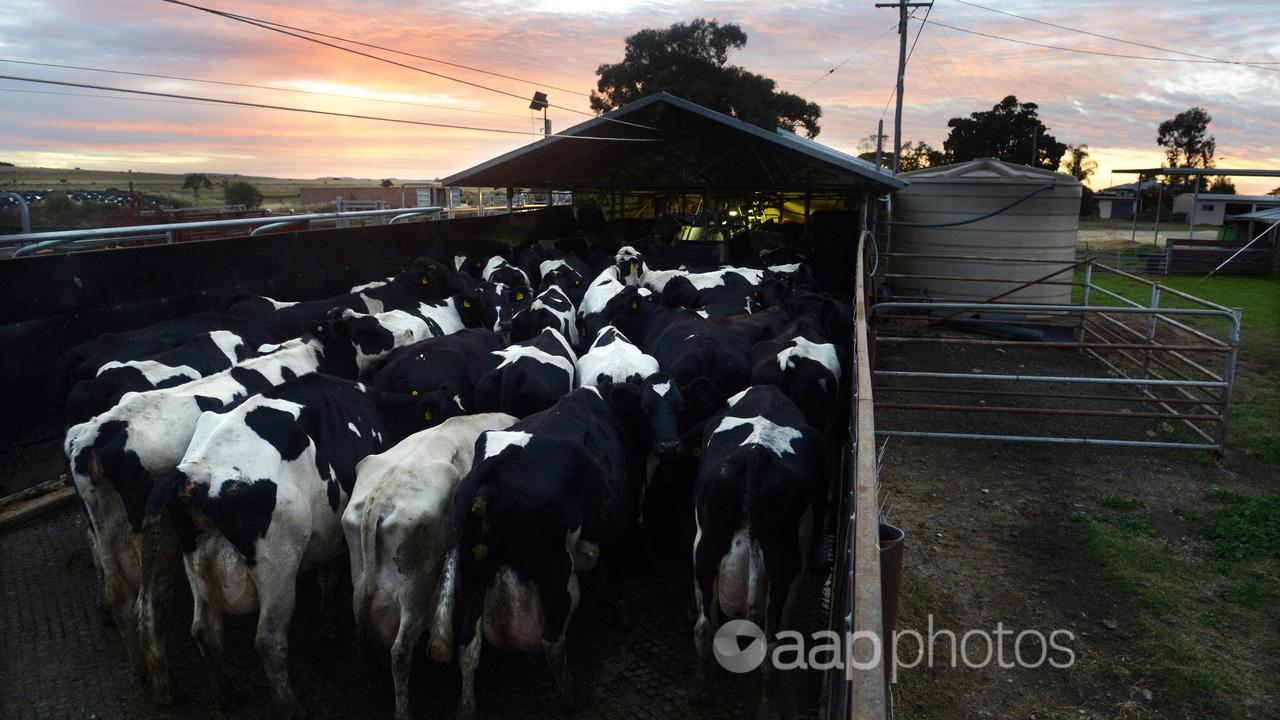An Instagram user claims raw cow’s milk contains lactase enzymes that make it easy to digest for those that are lactose intolerant.
This claim is false. Experts say there is little to no lactase in raw milk, and any traces that are present would not impact digestion or help those who are lactose intolerant.
The video (screenshot here) was posted by Shannen Michaela, a wellness influencer, who says that she “healed” her lactose intolerance with the help of drinking raw milk.
“Healing my lactose intolerance with raw cow’s milk”, the text in the video reads followed by the claim “raw milk naturally contains both lactase and lactose”.
She goes on to claim that during pasteurisation of milk, the enzyme lactase is destroyed, making it hard to digest. Unlike raw milk, she says, which contains lactase, making it digestible for those lactose intolerant.

However, experts told AAP FactCheck there was either no lactase in raw milk or minute traces that would not aid digestion at all.
Dr Evangeline Mantzioris, program director of the nutrition and food sciences degree at the University of South Australia, said the video’s suggestion that lactase is destroyed during the pasteurisation process is false. “Milk doesn’t contain lactase, we make lactase,” she explained.
“Lactose is the sugar that’s in milk, and normally, some people can’t break it down, and that’s because they lack the enzyme called lactase,” she said in an email.
“If you can’t break down the lactose, it doesn’t get absorbed into your bloodstream and stays in your intestines. Because the concentration of sugar is higher in your intestine, your body draws out fluid from the intestinal cells, and it goes into the gut, and people get diarrhoea.
“The lactase is produced in your small intestine. Some of us can’t make it. Those of us that can make it are able to break down the lactose.”
Professor Lauren Ball, a dietician and expert in community health and wellbeing at the University of Queensland, agreed the video’s claim is false.
She highlighted an article by the US Food & Drug Administration examining the myths associated with drinking raw milk.
“Raw milk advocates claim that raw milk does not cause lactose intolerance because it contains lactase secreted by ‘beneficial’ or probiotic bacteria present in raw milk…raw milk does not contain probiotic organisms,” the article states.
“There is no reported physiological role of milk indigenous or exogenous proteases in human protein digestion. These enzymes, like other proteins, are denatured in the acid gastric environment and digested by human proteases secreted in the gastrointestinal track.”

Professor Jennie Brand-Miller, an expert in human nutrition at the University of Sydney, said there may be tiny amounts of lactase in raw milk but not of “any physiological significance”.
Prof Brand-Miller said lactase is an enzyme naturally found in the gut lining, and “raw milk contains many enzymes, but the amounts of lactase are negligible”.
“There is no lactase in milk that’s of any physiological significance. It has no effect on the digestion of lactose… It is not enough to make one iota of difference for someone with lactose intolerance,” she told AAP FactCheck in an email.
When comparing raw and pasteurised milk, an article published by Stanford Medicine found no difference in its impact on digestion “regardless of bacteria” because raw milk and pasteurised milk have the same amount of lactose.
The Centers for Disease Control and Prevention warns that raw milk “can carry harmful bacteria and other germs that can make you very sick or kill you. While it is possible to get foodborne illnesses from many different foods, raw milk is one of the riskiest of all”.
Similar claims about lactase and the benefits of raw milk have also been addressed here, here and here.
The Verdict
The claim that raw milk contains lactase enzymes, making it digestible, is false. Lactase is produced in the gut lining, and while raw milk may contain tiny traces, experts say the amount is insignificant and would not have an impact on digestion or aid those who are lactose intolerant.
False – The claim is inaccurate.
* AAP FactCheck is an accredited member of the International Fact-Checking Network. To keep up with our latest fact checks, follow us on Facebook, Twitter and Instagram.
All information, text and images included on the AAP Websites is for personal use only and may not be re-written, copied, re-sold or re-distributed, framed, linked, shared onto social media or otherwise used whether for compensation of any kind or not, unless you have the prior written permission of AAP. For more information, please refer to our standard terms and conditions.


















